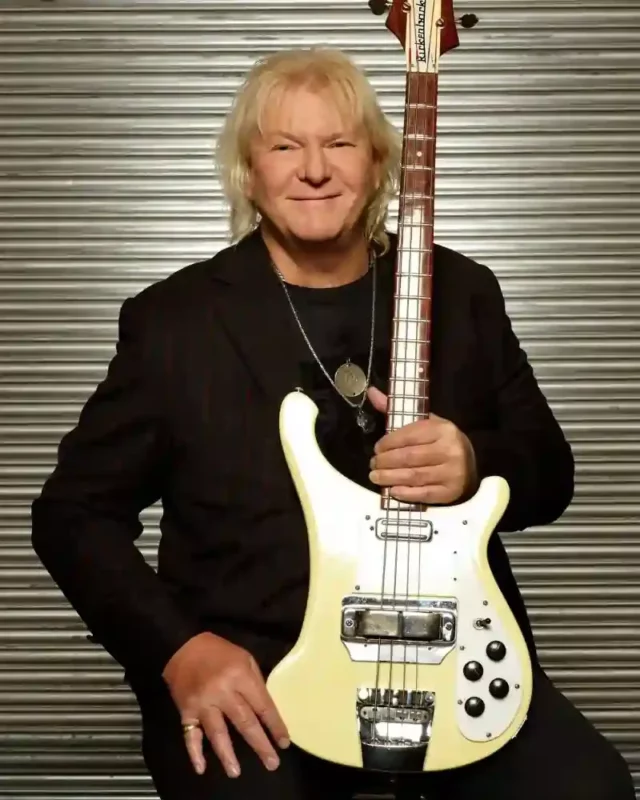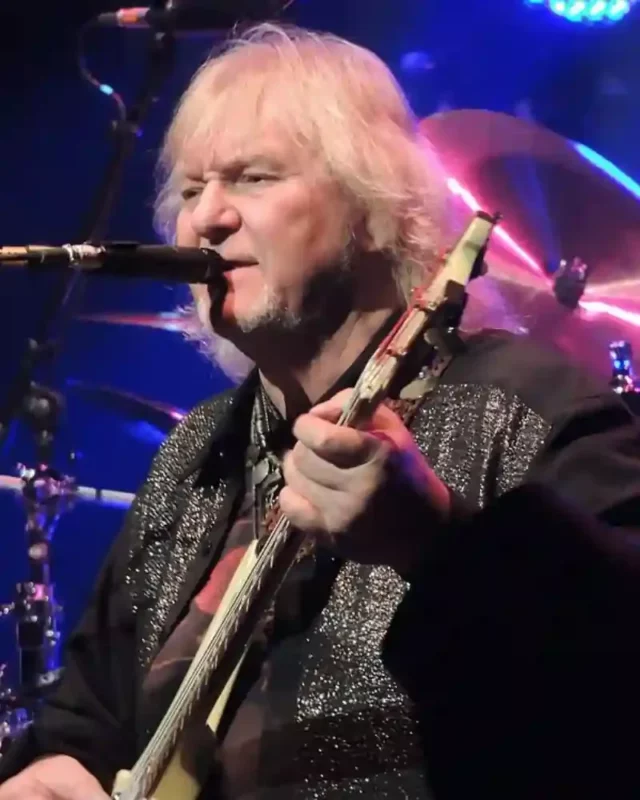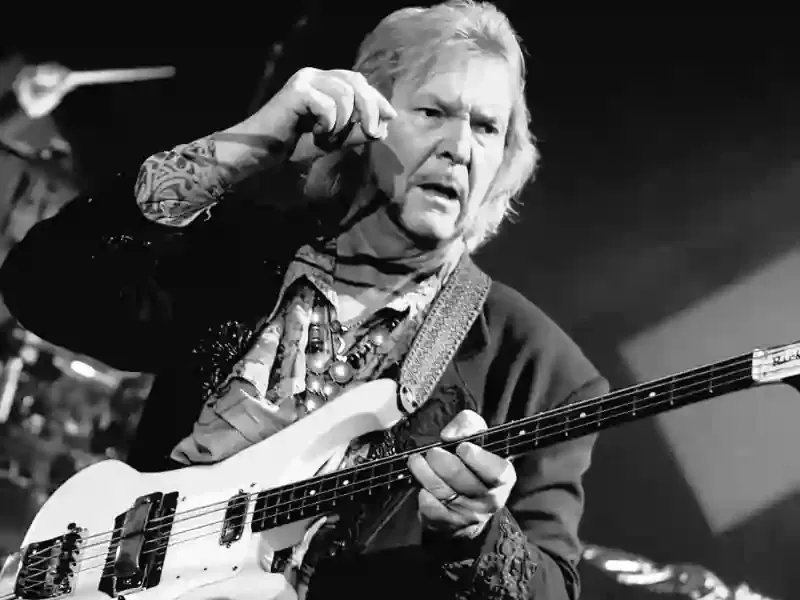Dive into the story of Chris Squire, a trailblazer in the progressive rock scene. Starting from his early life all the way to creating the legendary band Yes, Squire’s creative bass skills and major impact are unforgettable in the music world; to show the details, we’ll look into his work on his own, the people he teamed up with, and the powerful influence he still has on music lovers and fellow artists today; the story of Chris Squire shows just how important an imprint he’s left on music history.
Early Life and Musical Influences
In the 1950s, as Chris Squire was getting older in London, music became his main focus, guiding him towards becoming a famous bass player. Mr. Squire was drawn into rock and roll, which was strikingly large at that time, thanks to persons such as Elvis Presley, Chuck Berry, and Buddy Holly; the undertaking strived to involve many influences in his music career.
Squire grew up in London, where the massive 1950s music scene surrounded him. It really set him up to do some legendary material in rock music later on. At first glance, you might wonder how falling under the spell of long-gone musical greats could do much today–but in what you may think is a stark contrast, an early sensation he caught basically led him to really play the bass guitar a lot.
Formation of Yes
After growing up in London and being fond of music early on, Chris Squire helped start the band Yes in 1968, which was a strikingly large moment for him or, in simple terms, his career’s turning point. Mr. Squire, Jon Anderson, Peter Banks, Bill Bruford, and Tony Kaye all worked together to make sure Yes stood out; they did something new with rock music, mixing fraught playing with layers of singing that all matched up nicely.

Image Source: Twitter
Chris Squire Body Measurements And Personal Details:-
Popular As: Christopher Russell Edward Squire
Occupation: soundtrack, composer, producer
Age: 67 years old
Zodiac Sign: Pisces
Born: 4 March, 1948
Birthday: 4 March
Birthplace: Queensbury, London, England, UK
Date of death: 27 June 2015
Died Place: Phoenix, Arizona, USA
Nationality: UK
Parents Not: Available
Wife: Melissa Morgan (8 May 1993 – 2004) ( divorced) ( 1 child), Nikki Squire (1972 – 1987) ( divorced) ( 2 children), Scotland Squire (? – 27 June 2015) ( his death) ( 1 child)
Sibling: Not Available
Children: Not Available
Height: 6 ft 4 in / 193 cm
Weight: 216 lb / 98 kg
Hair Color: Blonde
Eye Color: Brown
Nationality: English
Race/ethnicity: White

Image Source: Twitter
Innovative Bass Techniques
Chris Squire really changed how the bass guitar was used in progressive rock with the band Yes, starting in 1968. It is apparent to us that his manner of doing things on the bass turned it into almost a main instrument, playing complicated tunes that fit perfectly with the band’s large and complex songs.
Squire experimented with effects pedals, such as distortion and wah-wah, so that he could create more great music with the bass guitar. Because he played so well and added melody, he really set a high bar for bass players in progressive rock. Fans and other musicians thought he was very good.
Solo Projects and Collaborations
In 1975, Chris Squire demonstrated his songwriting skills and how innovative he could be with a bass guitar when he released his solo album, ‘Fish Out of Water.’ Besides connecting deeply with Yes, he really started working on several different individual projects and wonderful partnerships with others.
Squire didn’t simply stick to one genre of music; he tried new and different options by working with famous people such as William Sherwood and Billy Idol. In addition, he teamed up with Steve Hackett, who used to play guitar for Genesis, and Yes drummer Bill Bruford on ‘Squackett,’ where they combined their special sounds.
Check out the body measurements of other celebrities.
| lorri bagley measurements |
| leslie parrish measurements |
| linda fiorentino measurements |
| mata hari measurements |
| phil dalhausser measurements |
Impact on Progressive Rock
Chris Squire, the co-founder and bassist of the band YES, was important in making progressive rock what it is. Even if you think it’s too much, his work was crucial for the growth and definition of the entire genre. His role in the band helped push progressive rock forward a lot, making him a leading force in its journey.
Chris Squire played music on the Rickenbacker bass guitar in a manner no one else did, making his play style of immense consequence to what we know as the progressive rock sensation. By coming up with complex and catchy melodies, he essentially showed musicians an entirely new path; through his creative bass jams, there can be gratification in finding out that he greatly changed music, pushing it to be more than it was before.

Image Source: Twitter
Legacy and Recognition
Chris Squire made a major splash when it came to reconfiguring how people looked at bass playing in progressive rock; his ability to mix melody with skill set the bar high for anyone else who wanted to play bass in that style.
Squire wasn’t only regarding the tunes — he also had a magic touch with songwriting and helped start the band. Certainly, which really sets his mark in rock history. Here, I engage in an intense examination of how, even after he passed away, fans and critics keep praising his work. He’s received many awards that show his influence in music is still extremely strong.
Frequently Asked Questions
What Was Chris Squire’s Favorite Bass Guitar to Play?
Squire really loved to play on his Rickenbacker 4001 bass guitar. Why? Because it had a unique sound and a wonderful look, playing a strikingly large part in making Squire’s bass style stand out.
Did Chris Squire Have Any Hidden Talents Outside of Music?
For this section, let us discuss Chris Squire. Although he might have been proficient at other subjects, few people truly understand it.
What Was Chris Squire’s Favorite Song to Perform Live With Yes?
Chris Squire played with so many famous songs when he was on stage, demonstrating how amazing he was at playing the bass and entertaining the crowd.

Image Source: Twitter
Conclusion
Chris Squire seriously left his mark on music with the manner in which he played bass and helped start the band Yes, having a big effect on progressive rock. Putting his talent and creativity on full display, his solo material and teamwork with others showed he was inherently, or in substance, similar to a major deal in rock music.
